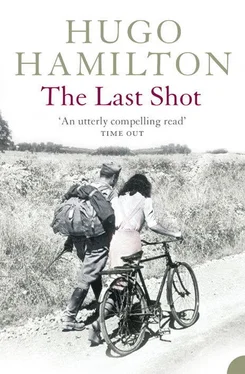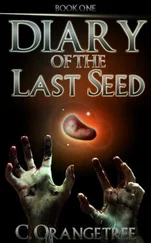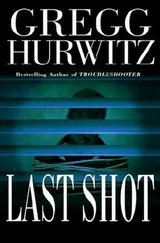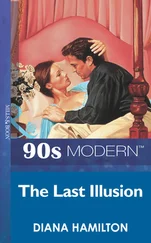I thought of the novel by Kundera where somebody is hounded for sending an anti-state joke on a postcard. I was curious to see if the joke still worked in the autumn of 1989, and sent six Klementa Gottwalda interiors with the same remark on the back: ‘Never trust a comrade.’
I wasn’t thinking. One of them went out to Jürgen and Anke in Münster.
Before I left Czechoslovakia, I wanted to buy a gift for Alexander. Anke had written to me telling me that Alex was very ill. Something serious. I had deliberately not sent him a gift on his fourth birthday because I had already promised Anke I would visit them when I got back from Czechoslovakia. I wanted to bring him back something from Prague.
A spinning top was all I could find. At a small kiosk in the main train station, I found this Czech-made spinning top. The rather corpulent man in the kiosk reluctantly took the toy out of the box to let me see it. It looked like a decent spinning top, but I still wanted to be sure I wasn’t buying junk and demanded to see what the colours were like. I asked the man to spin it for me, making a whirlpool sign with my finger. The colours were impressive, merging from pink to azure, purple to scarlet. It didn’t hum. But there was something comical about a large, angry man inside a tiny kiosk at this vast Soviet railway station, pumping a spinning top. He did it with deep resentment. He hated the customer.
I bought it. On the train afterwards I reconsidered, wondering if the spinning top was the right thing for Alex, for a four-year-old boy with Down’s Syndrome. Would Anke and Jürgen be happy with it?
You think too much on trains.
I spent thirteen hours on the train before I reached Nuremberg, late in the evening. Re-entering Germany was like falling over a cliff into another world; a world where everybody loves the customer. The main streets were bursting with neon lights and brightly lit window displays. There was already a hint of Christmas.
I rang Anke the next day and told her I would go straight up to Münster to see them. I continued the journey across Germany late at night on the Intercity. I saw people taking out flasks of coffee and sandwiches; eating quietly by themselves. I saw people asleep with their mouths open. Sometimes I could make out a succession of electricity pylons in the dark landscape. In Frankfurt main station, where I waited to change trains, I saw a group of American GIs, two blacks and three whites, all drunk and cheerful. They were just beginning to grow moustaches. I saw one of them stuff a half-eaten hamburger down another GI’s neck. ‘You motherfucker,’ I heard the guy say, while the others fell about laughing. I felt at home.
By the time it got bright, I was passing along the Rhine. It was a still, wintry Sunday morning. An elderly woman got on and sat by the window in my compartment. Nobody talked. Everybody stared out of the window at the rust-coloured landscape.
A while later, an argument developed between the old woman and the Intercity conductor. He accused her of not paying the Intercity surcharge. The woman pleaded with him, saying she had already paid it at her travel agent’s. The conductor would not accept that and continued to demand 14 DM from her. She began to cry. I could see the tears on her face.
I intervened. I asked him if this was necessary. Did he not believe the woman? He refused to speak to me. He looked out of the window and demanded 14 DM. The Intercity conductor doesn’t believe tears. He gave her a choice of paying up or handing over her identity card. She fumbled in her purse with the tears streaming down her face.
I talked to her afterwards. She stayed on the train until Duisburg, still in tears, still proclaiming the injustice. I began to think there was more behind this. Maybe she was really crying about something else. I wanted to ask her about the war. Where she had been. What her experiences were. I believe tears when I see them. All she would tell me was that she was on the way back from visiting relatives in Stuttgart. Some people don’t mind telling you things. Others will keep it to themselves. This frail woman sat in silence for the rest of the journey, staring out of the window.
I forget why Anke is beautiful. When you see her after a long time, you say to yourself, with a familiar shock: she is extremely beautiful. As much so in a pair of jeans and T-shirt as she would be dressed up to go out for an evening. Maybe it’s a universal charm, crossing all boundaries of personal preference. Everybody likes her. She can get away with anything. She can do no wrong.
Is it some kind of perfect symmetry in her features? Is she like a model? No. In the mirror, she is a little off-centre. Her smile is left-seeking. That’s the real test of symmetry, the one that artists use when painting portraits. Anke has idiosyncratic beauty. You would never guess her background. Or her age. She is one of those women who are beautiful as children and go on being so until they’re eighty. She will be a lovely old woman. Her mother is the same.
Anke jumped out of the Mercedes and walked over to embrace me. She had that slanted smile on her face. Life is for a laugh was her leitmotif; always was. I threw my bag into the back beside the child seat. On the far side, there was a large box of disposable nappies. It made me calculate. Alexander was four. Still a baby.
It was like a homecoming. Anke drove slowly through the town, talking and asking questions. The old buildings of Münster were all lit up, light spilling over on to nearby trees. The streets were empty. Sunday evening. We stopped at traffic lights, where the red light bled on to a tree beside it. Anke kept talking and looking at me.
Jürgen had the door open when we arrived. He embraced me too and stepped back to take a good look at me, to see if I had changed.
‘I got your card,’ he said, punching me and then leading me away into the living-room with his arm around my shoulder.
Alexander was shy at first. Jürgen showed him how to shake hands. Then Alex wanted to shake hands again and again. He ran away and came back to say hello again. His eyes shone.
‘I hope you’ve got some time,’ Jürgen said. ‘I hope you can stay for a while. We’ve got a lot to talk about. And I’m going to take you hang-gliding if you stay till next weekend.’
I told him I could stay only a few days. He said he was going to change my mind. Then he sat back and listened. Jürgen wanted to know everything.
Alex ran into the kitchen, where Anke was preparing something to eat. He came back moments later with an onion for me. After a while he came back again with an apple. His mouth dribbled.
Jürgen talked about his new practice. He had taken over his father’s practice and moved into new premises. Then he began to talk about changes happening in Germany, about the freedom trains. Münster was full of East Germans and displaced Germans from Poland. What did freedom of choice mean in Germany? What did they want?
‘It’s the choice between thirty-five bars of soap,’ Jürgen said. ‘The choice between mauve and sludge-green blouses. The choice to boot down the Autobahn at a hundred and fifty kilometres an hour. Everybody wants that choice.’
Alexander had dragged a chair into the middle of the room and sat underneath it, pretending to go to sleep. He began to sing. It was more like groaning.
‘Real freedom is a completely different matter,’ Jürgen said. ‘Something we can talk about later: the difference between state freedom and domestic freedom. Personal freedom.’
Over dinner, it was Anke’s turn to talk about the events in Germany. People wanted the freedom to go anywhere in the world, even if they chose to stay at home.
Читать дальше
Конец ознакомительного отрывка
Купить книгу












